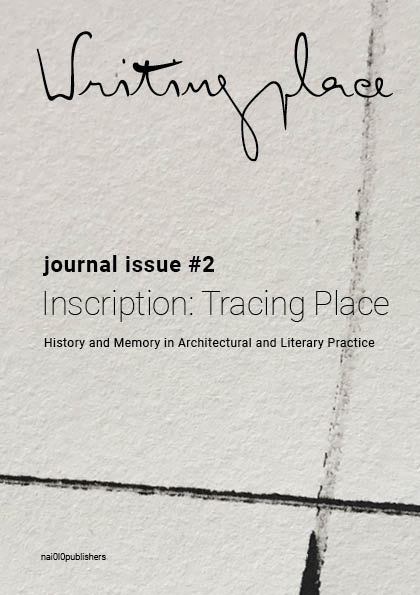Dark Inscriptions
Placing Theory and Tracing Practice in Nocturnal Glasgow
DOI:
https://doi.org/10.7480/writingplace.2.2641Keywords:
night walking, memory, urban culture, design, traces, timeAbstract
This paper presents a frame for rethinking how we make cities by exploring the notion of writing beyond a literary act.To contextualize our approach and its application, we draw upon our recent Collaborative Urbanismpractice in the Scottish city of Glasgow, UK, to explore the ongoing dialogue between practice and theory in relation to city making. A significant challenge that this emerging practice seeks to address is the need for an effective and authentic method for communities and professionals to come together to co-create new public realm. To understand the perspective our practice is based on, we define two key terms. We employ the term authorshipin its broader definition to describe the state of creating or causing effect, specifically the sense of ownership and activation resulting from engaging directly with urban space. By the term inscriptive practice, we are referring to the action of a spatial practice that leads to authorship, i.e. we use collective walking as a means of inscribing urban space. We argue that collective walking when framed as an inscriptive practice enables a different type of authorship throughrather than ofthe site. Our action research area addresses the aftermath of the Modernist project to drive a motorway through the heart of Glasgow in the 1960s and therefore seeks to give people a sense of ownership of parts of the city that have become lost to public use. In this case study we use the practice of night walking to explain how walking enables us to unlock the latent identities, memories and rituals of sites for architectural design and urban choreography. Furthermore, our paper explores, when urban stories are revealed, how they can be used to change what places become in two ways. Firstly, through the act of walking as active and inscriptive in itself. Secondly, having inscribed it and enacted it these places are opened up to a dialogue that can be built upon for future uses. To conclude, we discuss our findings so far and their implications to better understand how we can work with the people of a city to read its secrets and collectively author its future.In this manner, we intend to contribute to the understanding of how collaborative, action-based research may portray and reconstruct places and provide nuanced knowledge of sites by activating them temporally prior to permanent design interventions.
References
Bruce, R. First Planning report to the Highways and Planning Committee of the Corporation of the City of Glasgow (Glasgow: Glasgow Corporation Printing and Stationery Department, 1945)
Careri, F. Walkscapes: Walking as an Aesthetic Practice (Barcelona: Editorial Gustavo Gili, 2002)
de Certeau, M. The Practice of Everyday Life (Berkeley: University of California Press, 1984)
Depardon, R. Glasgow (Paris: Éditions du Seuil, 2016)
Douglas, R. Night Song of the Last Tram (London: Hodder and Stoughton, 2005)
Dunn, N. Dark Matters: A Manifesto for the Nocturnal City (New York: Zero Books, 2016)
Elkin, L. Flâneuse: Women Walk the City in Paris, New York, Tokyo, Venice and London (London: Chatto & Windus, 2016)
Gray, A. Lanark (Edinburgh: Canongate, 1981)
Grosz, E. Space, Time, and Perversion: Essays on the Politics of Bodies (London: Routledge, 1995)
Gros, F. A Philosophy of Walking (London: Verso, 2014)
Hassan, G. Melissa Mean and Charlie Tims, The Dreaming City: Glasgow 2020 and the Power of Mass Imagination (London: Demos, 2007)
Kelman, J. How Late It Was, How Late (London: Minerva, 1994)
Mina, D. Garnethill (London: Hachette UK, 1998)
McArthur A. and Kingsley Long, H. No Mean City (London: Longmans, Green and Company, 1935)
Nairn, I. Britain’s Changing Towns (London: British Broadcasting Corporation, 1967)
Spring, I. ‘The Secret Geometry of Glasgow’, Real Glasgow (Bridgend: Seren, 2017)
Solnit, R. Wanderlust: A History of Walking (London: Penguin Books, 2001)
Weir, M. Shoes Were for Sundays (London: Penguin Books, 1970)
Welsh, L. The Cutting Room (Edinburgh: Canongate, 2002).



